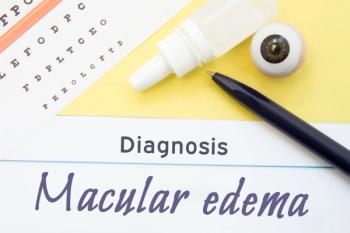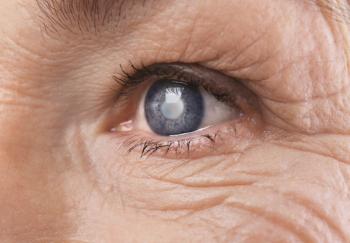
Vision Impairment Impacts Children's Quality of Life
This systematic review and meta-analysis looked the impact of myopia (nearsightedness) and strabismus (misalignment of the eyes) on children.
Children with myopia (nearsightedness) and strabismus (misalignment of the eyes) often experience significantly reduced quality of life compared to those without vision impairment, finds a new study1 from Orbis International. Published in Ophthalmology, this systematic review and meta-analysis also finds that surgical treatment of strabismus improves quality of life among children, underscoring the importance of early detection, treatment, and health insurance coverage of strabismus for children.
The research received financial support from the Japanese pharmaceutical company Santen, according to a
Moreover, Orbis noted in its release quality of life and mental health are increasingly being recognized as important global health concerns. With an estimated 70 million children experiencing vision impairment around the world, understanding the impact of these conditions on mental health is critical.1
The company noted that a child's vision function is assessed by clarity or sharpness of their vision. However, this approach does not measure a child's perception of their own visual impairment and ability to successfully complete daily tasks. For example, chronic eye conditions that may not affect central vision but have other negative impacts, like strabismus, have been shown to cause physical, educational and socioemotional difficulties in their daily lives.
This research is a companion research study2 published last year by Orbis, and also published in Ophthalmology, that found children with myopia and strabismus were diagnosed with higher rates of depression and anxiety than children without vision impairment.
“Our papers in Ophthalmology furnish the strongest evidence yet that impaired vision in children is associated with mental health problems, such as depression and anxiety, Prof. Nathan Congdon, M.D., director of Research at Orbis International, said in the news release. “This latest study provides an even broader picture of a child's mental health, including quality of life, wellbeing, and self-esteem, meaning we now have a complete story about how a lack of vision care can cause mental health problems for a child.”
Reference:
Dongfeng LI, Ving Fai Chan, PhD, Gianni Virgili, PhD, et.al. Impact of Vision Impairment and Ocular Morbidity and Their Treatment on Quality of Life in Children: A Systemic Review.Ophthalmology. Published September 9, 2023. Accessed September 14, 2023. DOI: 10.1016/j.ophtha.2023.09.005.
Dongfeng Li, Ving Fai Chan, PhD, Gianni Virgili, PhD. Impact of Vision Impairment and Ocular Morbidity and Their Treatment on Depression and Anxiety in Children. Ophthalmology. Published October 2022. Accessed September 14, 2023. DOI: 10.1016/j.ophtha.2022.05.020.
Newsletter
Get the latest industry news, event updates, and more from Managed healthcare Executive.























